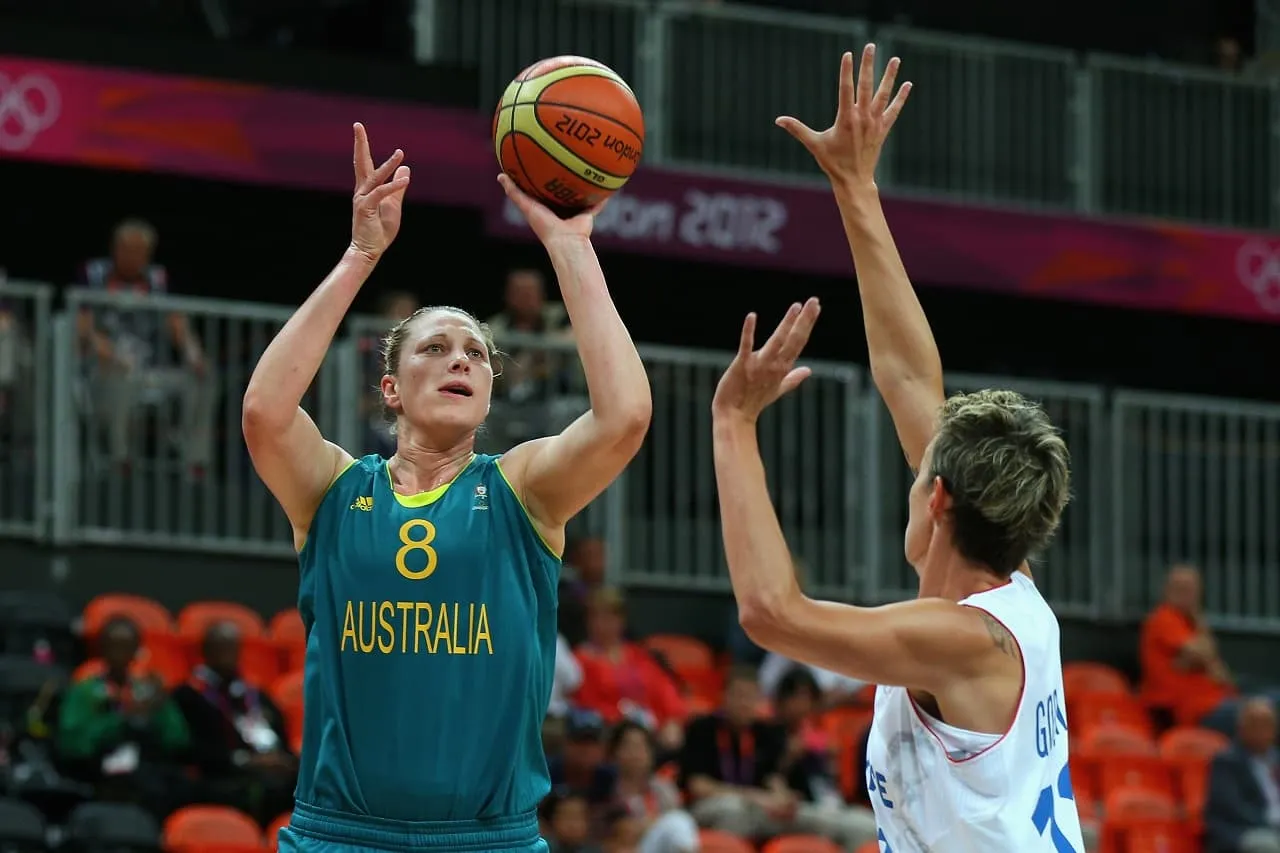Important note: The statements made in this paragraph about the cover provided by Flip Insurance for accidental injuries and the amount of benefits payable relate to the Flip Insurance products dated 27 June 2023.Those products were withdrawn and replaced with the new Flip Insurance products on 24 Sept 2025, which has a different scope of cover for accidental injuries. These statements do not describe the scope of cover under that new product. Please refer to the current Product Disclosure Statement for details of that cover.
Active kids do better at school and enjoy lifelong rewards in physical, mental, social and economic wellbeing. While the benefits of kids playing sports are well documented, keeping headstrong teens from quitting sports can be challenging.
Teenagers leave sports in their droves due to busy lives and changing priorities, but parents play a big role too. Discover why teenagers quit sports and how you can help keep your kids engaged.
What the data tells us about sports participation
While figures may differ, research agrees on one thing - there is a significant decline in sports participation during adolescence.
According to research by the University of Wollongong, it is common for Australian adolescents to drop out of sports during their teenage years.
These results are concerning, because playing sports and being active delivers enormous benefits to individuals and societies.
Three reasons why keeping kids playing sports is important.
- Kids who play sports do better at school.
Australian research shows continued sports participation was associated with improved school performance. It boosts attendance and attention along with literacy, numeracy and year 12 results. - Active kids are physically and mentally healthier.
Another Australian study concluded kids and teens who dropped out of organised sports had lower physical activity, greater body fat and greater depression at age 20 than those who continued participation. - Early habits shape lifelong outcomes.
Habits formed in childhood and adolescence are crucial in setting up lifelong behaviours. Kids who play sports while growing up are more likely to remain active as adults, leading to improved physical, mental, social, and economic wellbeing for life.
When your mum is a sports psychologist
We spoke with sports psychologist, author and parent Dr Jo Lukins to learn about her family’s journey with sports.

How have your kids benefited from sports participation?
My boys are now 21 and 17 and they both started in soccer, like many kids do. They tried many sports like surf lifesaving, basketball, touch football and swimming. There were always lessons within those sports. They learned perseverance, emotional regulation and communication skills. They also learned how to fuel themselves well and navigate challenging situations.
What types of challenging situations did they need to overcome?
They’ve had to have difficult conversations, deal with not being selected for different things and accept losses with grace. One year, I remember one of them didn't win a game in their soccer team for the entire season. Navigating some of those things sets you up for challenges later in life. Parents can support their kids by being part of the conversation. If parents are struggling to support their teen, my book In the Grandstands has loads of strategies to help parents guide their kids through various sporting minefields and help them find lasting enjoyment in sport.
Can you recall any key experiences where you could see their sporting experiences helped them in other aspects of their lives?
Their sporting journies set them up with many life skills. The benefits like doing better at school just pile up. The eldest is now a medical student, and when he faced a selection interview for entry into the course, he drew on a lot of the sporting experiences as examples to demonstrate many required skills. My family has definitely experienced the benefits of sport as a lifelong part of their journey.

Why kids quit sport
Research has uncovered five main factors associated with kids leaving sports. While some are outside parents’ control, many are under our influence. We need to recognise and address the fact that adult pressure and expectations can unintentionally take the fun out of sports for kids, leading to them dropping out.
- Lack of enjoyment: Kids who don’t find sports enjoyable are more likely to quit. Whether it’s due to monotonous drills, overly competitive environments or lack of playfulness, enjoyment matters. In Dr Jo Lukins’ book In the Grandstands, she says teens' most commonly expressed reason for dropping out is that it’s no longer fun.
- Perceptions of competence: If kids feel inadequate or believe they’re not good enough, they may lose interest. Confidence and self-perception play a significant role. Comments from parents and coaches can have a considerable influence on self-belief.
- Social pressures: Peer dynamics, fear of judgment and fitting in can impact a child’s sports experience. It’s important to kids that they feel socially accepted.
- Competing priorities: Busy schedules, academic demands and other commitments like socialising and part time jobs can pull adolescents away from sports.
- Physical factors: Injuries, fatigue or lack of physical fitness can discourage kids from continuing to play sports.
Now that we understand why kids quit sports, what can we do to turn it around?
How to keep your teens in sport
Here are some tips and ideas for parents to encourage their kids to keep playing sports throughout their teens and into adulthood.
1. Reflect on your behaviour.
One of the main reasons kids quit sports is pressure from others, which leads to them not having fun or feeling like they’re not good enough at it. It might be unintentional and even come from a place of love. Here are some things you might be doing without even realising it:
- A focus on winning: As Dr Lukins says, if your first question is ‘Did you win?’ you’re showing them you value that over everything else. Try ‘Did you have fun?’ instead.
- Heated exchanges: If your child sees you yelling on the sidelines or nodding along when a coach delivers a stinging post-match address, they may not feel you’re on their side. Be a calm and supportive presence and call out any negative behaviour by others.
- Critical comments: Stick to positive and encouraging comments. Focus on effort and improvement, not just outcomes. Dr Lukins suggests these six powerful words after a game: ‘I love to watch you play.’
- High expectations: Unrealistic expectations can lead to stress and burnout. Parents who set excessively high standards may inadvertently discourage their children. Encourage progress but avoid undue pressure.
2. Communicate openly with your teen.
If your teen wants to quit, talk with them about it.
- Reinforce the importance of sports: Teach them about the lifelong benefits of sports participation so they understand why it’s important to keep active.
- Find out what’s going on for them: Ask them why they want to quit, and what changes might help them keep playing.
- Encourage them to give you feedback: Find out if there’s anything you’re doing that is putting pressure on them, and be prepared to change your approach.
- Don’t force them: There’s no surer way than building resentment in a teen than forcing them to do something against their will. Negotiate, encourage and incentivise, but don’t force.
3. Consider making a change.
It might be that the sport they’re doing isn’t right for them, and rather than quitting sports altogether, they just need a change.
Explore other options: Suggest other sports, teams or non-competitive activities that might suit them better. If the standard is too high, dropping a division might make it more enjoyable. If they’re bored or feeling like they don’t fit in, let them know there are endless possibilities, and you’re happy to keep exploring with them until they find something they love.
4. Support them holistically.
Sometimes, their desire to quit is not about the sport.
- Revisit the basics: If they find playing sports too tiring, encourage rest days, adequate nutrition and plenty of sleep.
- Ensure they aren’t overscheduled: They may feel overwhelmed with all of the things they need to fit into their life. Go through their schedule with them and help them prioritise what’s important and cut out anything that’s not.
Help them avoid and recover from injury: Keep injuries to a minimum with adequate preparation and proper protective gear. And if they get hurt, ensure they have access to the best rehabilitation and recovery options. If you’re worried about the financial impact of sporting injuries, you could check out Flip Kids. It covers kids aged 5-17 for eligible accidental injuries from just $7 for a single day of cover.
Parental support can be a game changer.
Australian basketball legend and politician Suzy Batkovic shares how her parents played a pivotal role in keeping her engaged in sport.

When I think about how my parents managed my sport when I was young, I feel very grateful. They never pushed me to do anything. They would ask the question, ‘What do you love?’ and encourage me to do it. They never yelled on the sidelines and would always find ways to support my brother and I, especially if we were not playing as well as we’d like. If I missed five shots in a row and was struggling, my parents would always be there to help me learn from it and keep going. Mum would say, ‘You made a mistake. Why are you worrying about it? It’s over. Move on’. When I think about all those years of Mum championing me and telling me to keep my head up and try again, I can clearly see the positive impact it had on my mindset and self-belief. She always made me feel like it was ok to back myself and take the next shot – and that drive and determination to get better and believe in myself has been such an important part of my success as a professional athlete.
SOURCE: Foreword, In the Grandstands, by Dr Jo Lukins
Helping you keep them in the game.
We hope our blog has helped you understand why kids quit sports so you can navigate their transition to adulthood fully armed with information and ideas.
Not all kids will stay in sport, so don’t beat yourself up if yours stops playing. The most important thing is encouraging them to get out there and enjoy an active lifestyle. If you want more ideas, check out our blog on planning active fun for families.


